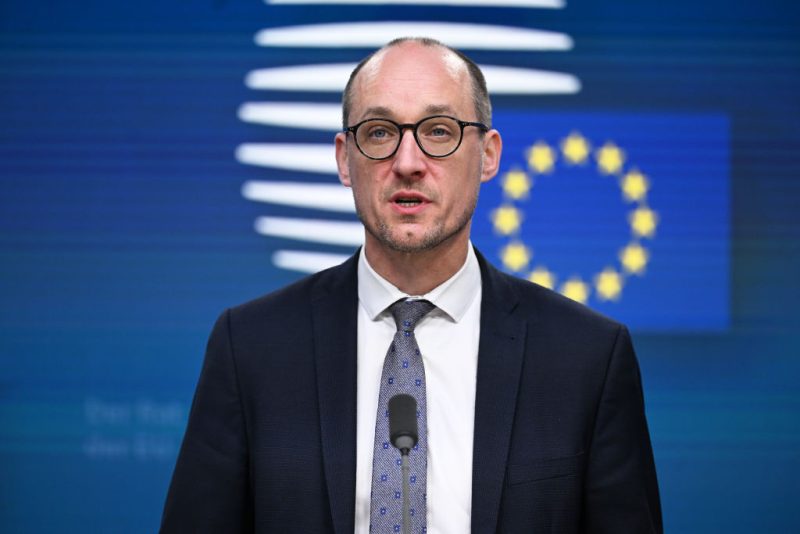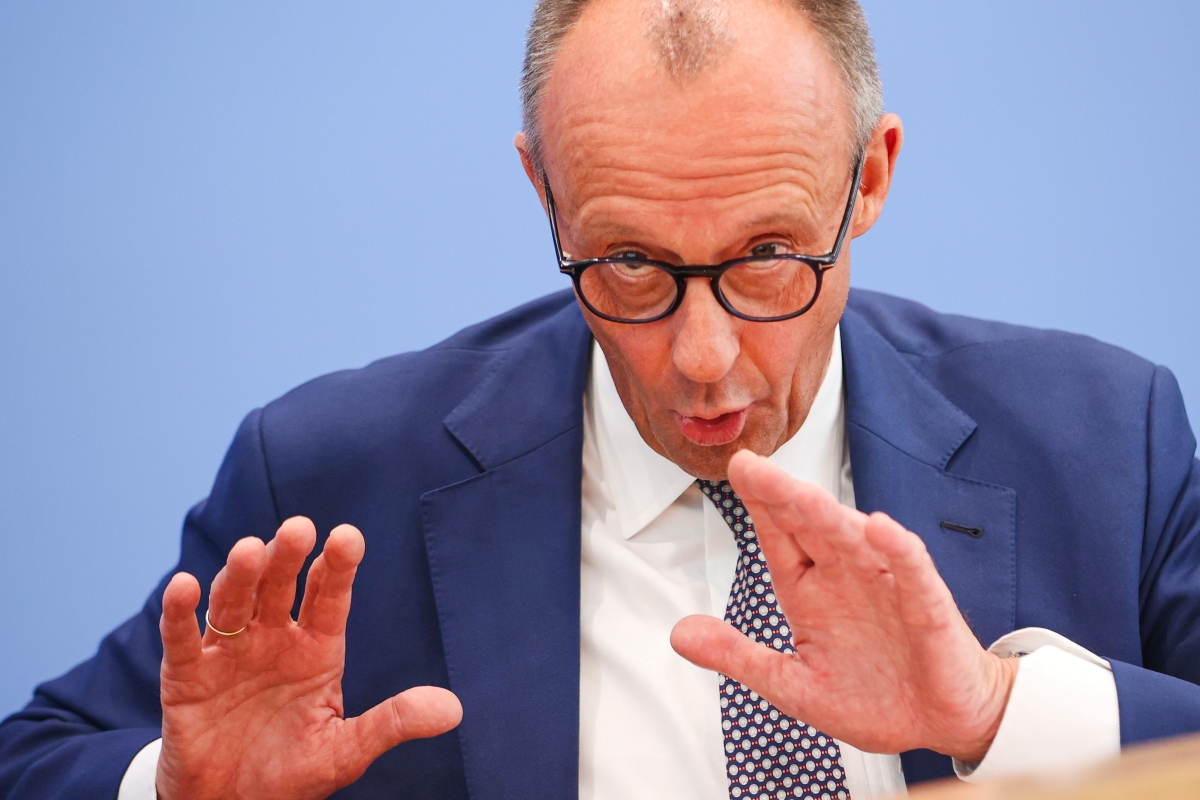German Chancellor Friedrich Merz proposed leveraging frozen Russian assets to unlock a €140 billion EU loan to help Ukraine defend itself on Thursday.
Writing in the Financial Times, Merz said the EU could make the money available to Kyiv as an interest-free loan “without intervening in property rights”.
He added that the money would only be repaid “once Russia has compensated Ukraine for the damage it has caused during this war”.
Helping Ukraine in this way would “systematically and massively raise the costs of Russia’s aggression,” wrote the conservative chancellor, in power since May.
Western allies of Ukraine have frozen hundreds of billions of euros in Russian assets amid the Ukraine war.
However, EU governments have long refrained from confiscating the money outright, worried that this could undermine confidence in the euro as a reserve currency.
Belgium ‘sceptical’ of using frozen assets for Ukraine reparation loan
The European Commission is struggling to allay fears over its plan to use hundreds of…
3 minutes

The EU is making a fresh attempt at leveraging the money held mostly by Brussels-based depository Euroclear.
European Commission president Ursula von der Leyen made the first call for a new “reparations loan” for Ukraine in her keynote state of the EU speech earlier this month.
The German chancellor wrote that “Germany has been, and remains, cautious on the issue of confiscating the Russian central bank’s assets that are frozen in Europe, and with good reason”.
However, he added that “this must not hold us back” in search of making the funds available for the defence of Ukraine.
“In my view a viable solution should now be developed whereby, without intervening in property rights, we can make available to Ukraine an interest-free loan of almost €140 billion in total.”
The loan would first have to be guaranteed by EU member states, and the mechanism should be agreed by a “large majority” of member states, Merz wrote.
He added that he would discuss his proposal with European leaders meeting in Copenhagen next Wednesday.
“I propose that, at the European Council at the end of October, we give the mandate to prepare this instrument in a legally secure manner,” he wrote.
(cp)
